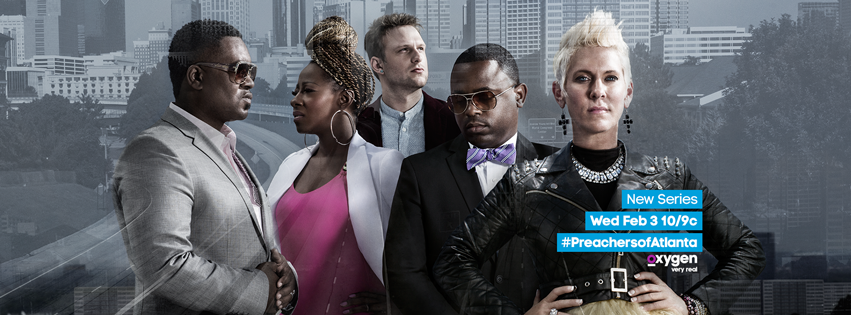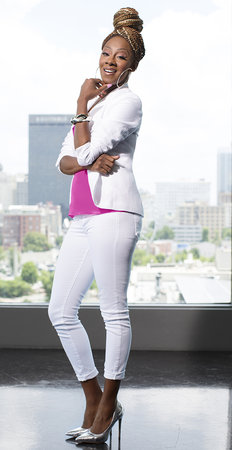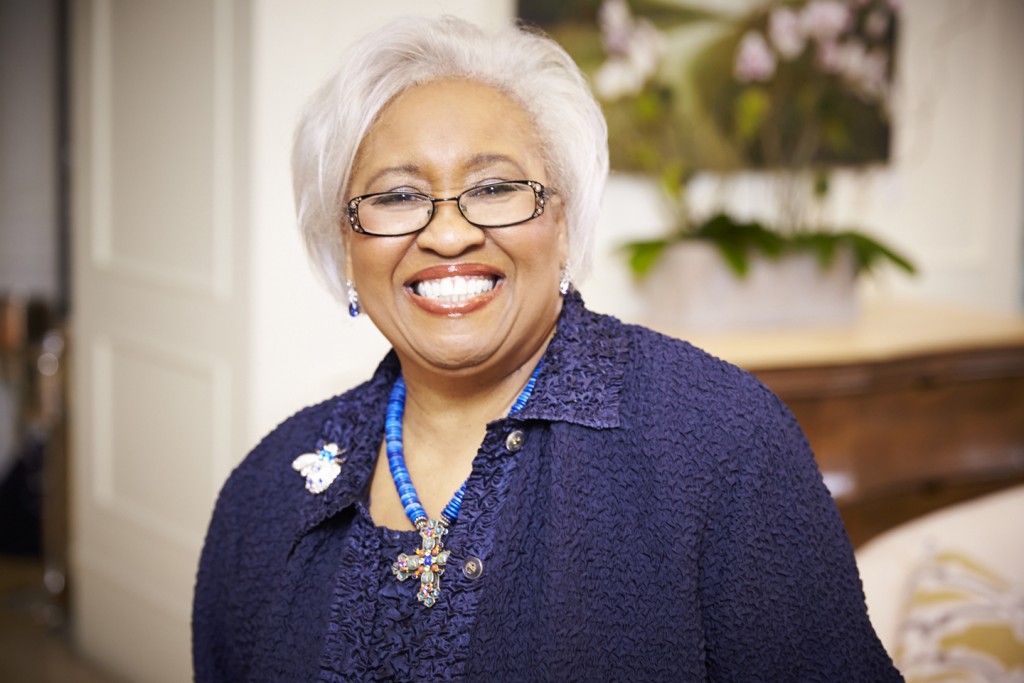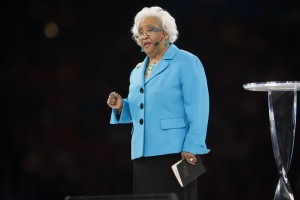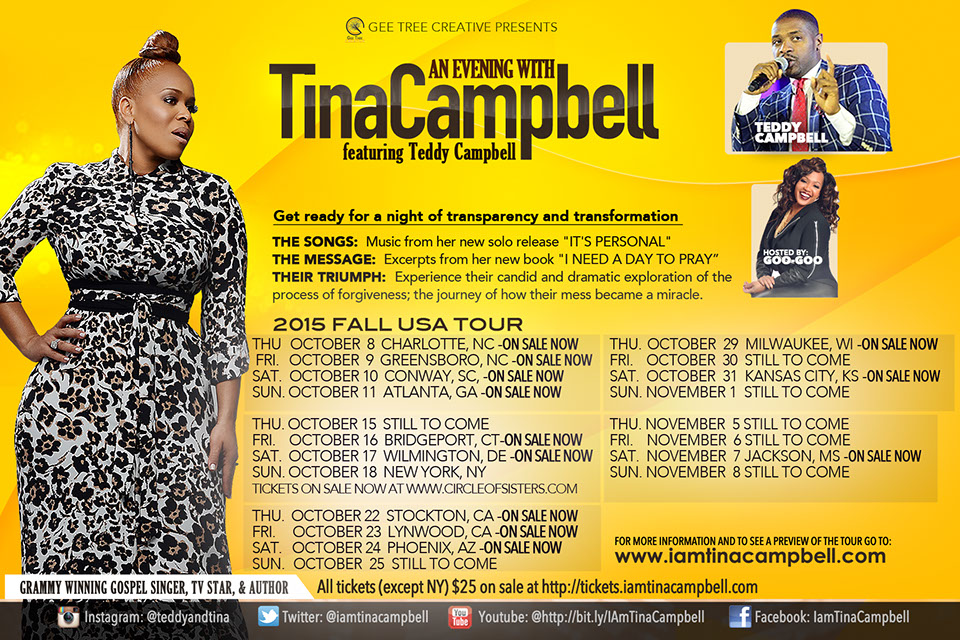Hello World,
I’m a PK (preacher’s or pastor’s kid) and I rep the A as my hometown so it’s a no brainer that I’m tuning into Preachers of Atlanta on GP alone…That being said, there are 7 specific reasons, I’m tuning into the Preachers of Atlanta tonight at 10 PM ET/PT on Oxygen!
1.Pastor Le’Andria Johnson
Should She Be a Pastor?
When I wrote the blog post “Was It Wrong for ‘Sunday Best’ Winner Le’Andria Johnson to be Drunk Allegedly on Periscope?” back in September, I had no idea she was a pastor of a church or that she would featured on the Preachers of Atlanta which premieres TONIGHT! I thought the name of her church I.P.C. (Imperfect People Changing) Ministries was simply the name of her ministry organization. Now that I know she is a pastor, I still think her being allegedly drunk on Periscope was bad judgment as I noted in my original post and now that I know she is a pastor, I feel even more strongly about this because James 3:1 is true. That being said, I appreciate her “keeping it real” attitude, but as we all know, keeping it real can go wrong real fast…
I asked Pastor Le’Andria Johnson about her decision to become a pastor particularly because there is additional scrutiny. Below is her answer.
Well, I didn’t decide to become a pastor, you know, I just answered the call. You know, not to be so deep, but that’s exactly how it happened. Because I didn’t want to be a pastor you know so. Accepting the call was easy because of my life growing up, you know, and I’ve seen things that I shouldn’t have seen, you know, and I wanted to be different. If I was going to accept the call, I wanted to be different…In doing that, this has been a tedious journey and the scrutiny of becoming a pastor, of course, the light is brighter now. I’m attracting more buzz. It’s something to definitely be prepared for, but it’s going good thus far so. The scrutiny is going to come with or without being a pastor. You get what I’m saying? So it’s rainy some days, you know, and then the sun is out, but I’m good. We good. We making it girl.
I also asked her about the Periscope broadcast incident and would she have changed anything about it looking back.
Well, at the end of the day, you know, I was in my house, this is exactly how I feel about it, and I exposed myself, you know. I was just letting the world, my fans, my supporters, you know, see that I have fun. This was Labor Day, you know, and I was just inviting them into my home letting them know I was chilling. This was a space and a time for me to chill with my family, but I shared it with my followers and my fans. And looking back on it, I don’t think that I would change anything about it. I don’t think I would. It’s the truth, and you know, you can’t change the truth. So it is what it is. It happened, you know. Will I ever do it again? You never know.
Condoms & Cigarettes?
During the first episode, Pastor Le’Andria also passes out condoms and cigarettes to homeless people that she encounters as she is inviting them to her church. I don’t necessarily disagree with her “ministry tools,” but I know these unconventional “ministry tools” will have people talking so I asked her about it.
Well I, again, I didn’t decide to do it, you know. It was a spur-of-the-moment thing. We were going on the streets to minister, and I said to myself, ‘Well, how are we gonna approach, you know, these men and women that are on the streets because you know, you don’t want to walk up to somebody and look at them because they look different from you and expect that they don’t know God.’ So I was like I needed something else so I was like, cigarettes. I heard this voice like, ‘Go get some cigarettes. You know meet them where they are.’ And I was like, ‘Cigarettes?!’And I did it so I took cigarettes and I took one of them when I was walking up and down the sidewalks. I heard, ‘Hey man, can I get a cigarette? Can I get a cig?’ I said, ‘Of course, the only way you’ll get this is if you talk to me about God.’ And that’s exactly why I did it. It wasn’t deep. It wasn’t no 45-minute message or nothing of that nature. It was just passing out cigarettes and talking about God…20 cigarettes passed out, and 20 people came to church the next day. It was a Saturday night. They came on Sunday, and they’re still coming to the church.
And you know, condoms, hey, who don’t practice safe sex? The world practices safe sex so why the church can’t practice safe sex? I’m not, you know, endorsing, you know, sex before marriage, but you know, it’s just what it is. Rather be safe than sorry. The prostitutes were out there. I was passing them out to the prostitutes so just doing the right thing.
Baby Mama Drama!
Also during that first episode, Pastor Le’Andria has some baby mama drama with her husband Forrest Walker, who is being accused of fathering a child before they got married. Now, the baby mama wants Forrest to claim the child although he is unsure of the paternity. Pastor Le’Andria wants him to get a paternity test and settle the issue and they argue about that during the episode. I asked her was she hesitant to reveal all of that on the show. Below is what she had to say about it.
No, I wasn’t hesitant to reveal all that on the show because maybe she’ll watch the show and she’ll be able to hear from my heart and understand what we need her to do as an adult, you know, so I wasn’t hesitant at all. It was another vehicle of communication other than the phone so not at all. My husband, on the other hand, was, you know, probably a little uncomfortable, but you know, he’ll be alright. He’ll be alright. We’re gonna work through this thing together, and we’re gonna make it work.
Below is the interview in its entirety if you would like to listen.
2. Pastor Canton Jones 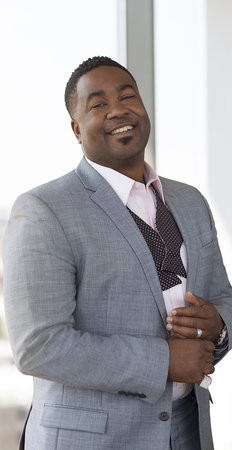
No Drama?
I’m a fan of the music of Canton Jones and I’ve listened to his show The Canton Jones Countdown Show on Praise 102.5 here in the A so I’m curious to know more about him. In comparison to Pastor Le’Andria, Pastor Canton’s life seems drama-free although in this first episode, he and his wife face high-risk pregnancy issues. I asked him about being a “drama-free” preacher on Preachers of Atlanta. Below is his answer.
I don’t know. I’m just me. A lot of people call life drama. And if that’s the case then everybody has drama, you know. So, ‘Oh my God, we forgot the baby in the daycare!’ Drama! You know what I’m saying? You can make drama out of anything, you know, and everybody can make drama. But I feel like we’re showing our life. Throughout this episode, we’re gonna show that we had a high-risk pregnancy. The doctor told us that we couldn’t have another baby, but we did. And so going against what they said, I don’t know if you call that drama, but we had a life on the line. It’s a lot that’s going to be on there so like I said, there may be some drama on there I don’t know, but my life is just so different I didn’t need any drama. We pastor church on a Thursday with a deejay in the dark so that is odd enough. So that’s what you’re gon see.
Music Ministry
As I noted earlier, I’ve been a fan of Pastor Canton’s music for a while, and one of the songs on the episode “I Can’t Help It” which features his protégé rapper Antonio is fire! (Is that cool to say? I’m not a millennial so…) Pastor Canton says, “Hip Hop music is just as relevant in church as hymns” in this first episode and I agree.
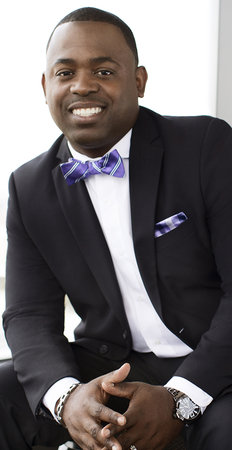 3. #BlackLivesMatter vs. #BlueLivesMatter
3. #BlackLivesMatter vs. #BlueLivesMatter
Pastor Corey Hambrick, who is a cast member of Preachers of Atlanta, is the pastor of the Life Church Christian Center AND a sergeant detective at the City of Conyers Police Department. His tagline is “I save souls, and I save lives,” but he rubs Antonio, who was in jail from the time he was 18 to 25, the wrong way. He even asks him how many people has he killed. He also asks him, ‘Why do you go so hard on us instead of using justice for good?’ I asked Pastor Canton what “had happened” after that their heated argument. Below is what Pastor Canton had to say about Antonio’s conflict with Pastor Corey.
You’ve got to watch and see that. But Antonio spoke for millions of African-American men in this country that feel picked on by the legal system so he just spoke out based off of his experiences. And Pastor Corey was trying to give a new perspective to Antonio based on him being in law enforcement. So that dynamic was really good. It’s going to be good for the country to see that. How it pans out? You’ve got to watch and see. Those guys really, really, really got into it. And it was up to me to kind of just really bring balance to the situation. And so that is what we tried to do.
4. A Cameo Appearance by Pastor Edward Long Jr.
During this first episode, Pastor Canton invites his friend Pastor Edward Long Jr. to a listening party. I’m sure I don’t have to remind you of the scandals involving his father New Birth Missionary Baptist Church Pastor Eddie Long, but I wouldn’t be a true to journalism if I didn’t ask if those scandals were addressed in Preachers of Atlanta. (I wonder if they asked Pastor Edward Long Jr. to be on the show…) So I asked Pastor Canton about why was he on the show and did he speak about his father.
I just brought him to the listening party to kind of just um…We’ve been doing music together for years on compilations, and I’ve been to their church to sing and perform a couple of times so I just wanted to hear his perspective on the music that day. And he ended up being in the conversation. But he was primarily just there to hear the music we were working on.
Does he at all speak on anything with his father or anything that has happened at his father’s church?
I’m not sure of that. You would have to ask the powers that be because I don’t know. Because everybody kind of… You don’t see all perspectives. I haven’t seen it yet so I’m not sure. I can’t answer that question.
5. A Cameo Appearance by Kyle Norman of Jagged Edge and his wife Marrika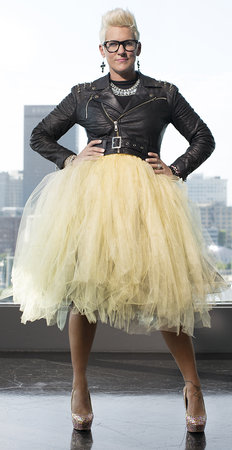
I’m a big fan of Jagged Edge being from the A, and my husband and I go back and forth about which group is better – Jagged Edge or 112. I went to high school at Banneker High in College Park with Richard Wingo of Jagged Edge so I gotta say Jagged Edge. All that to say, I was shocked when I heard that Kyle Norman reportedly assaulted his then fianceé by shoving the wedding ring he bought her down her throat last year. Since then, they have obviously reconciled as they are married and even appeared on the Steve Harvey show together. Apparently, they also discussed their relationship with Pastor Kimberly Jones-Pothier, who is a Preachers of Atlanta cast member and known as “Real Talk Kim.” Pastor Kim has been married twice and says she has a passion for abused women. I didn’t see the Normans in the first episode, but I saw them in a trailer at the Preachers of Atlanta premiere party so I’m curious about what happens in their discussion with Real Talk Kim.
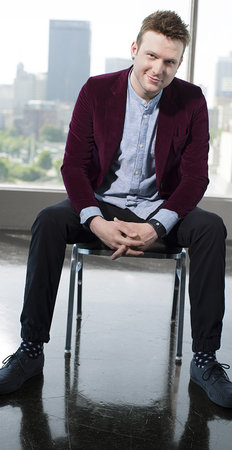 6. Pastor Judah Swilley
6. Pastor Judah Swilley
I don’t know much about Pastor Judah Swilley, but I enjoyed him rapping at the Preachers of Atlanta premiere party. From the Beastie Boys to Eminem, I appreciate the white approach to rap and hip hop so it’s going to be interesting to see how this Preachers of Atlanta cast member’s story line .
7. An Unconventional Way to Spread the Gospel of Jesus Christ
Now that I’ve gotten all of the juice out of the way, the most important reason I’m tuning into the Preachers of Atlanta is to see the gospel of Jesus Christ being spread to even more people. Now, after you’ve read all of that, you may wonder if Jesus will be highlighted at all, but I think anything can be used for good – even reality shows. This is what Pastor Canton had to say about it.
We are definitely bringing a different perspective on this show, and that is what we wanted to do. We wanted to show hip hop being used in the church and us pastoring a really out there millennial generation and how to reach those people from our perspective, what God has given us, so it was fun. It was a great process, and we would do it again in a heart beat. We loved the experience. And we pray that people get the heart behind what we were doing. But even if they don’t, I feel like there is going to be a set bunch of people or number of people that we were supposed to target that is going to get the message. It’s all about the message of Jesus Christ. It’s all about the kingdom. But the way we brought it is kind of different than what you would normally see…
Let the church say, “Amen!”
Y’all gon watch tonight?
Any thoughts?

